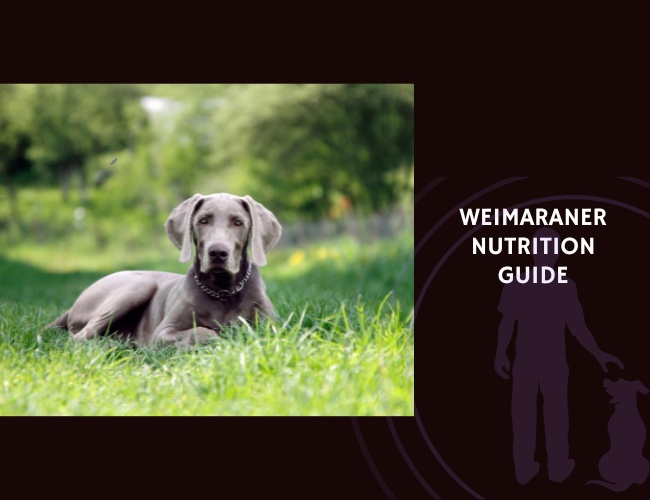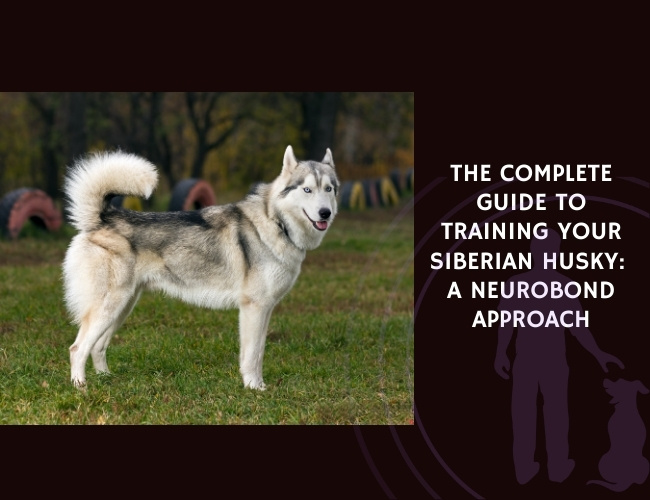Your Weimaraner’s distinctive silver-gray coat gleams in the sunlight as they bound across the yard with seemingly endless energy. This athletic breed, originally developed in 19th century Germany as a versatile hunting companion, carries unique nutritional needs that reflect their heritage as tireless workers and devoted companions. Let us guide you through understanding how to fuel your “Gray Ghost” for a lifetime of health, vitality, and that characteristic Weimaraner enthusiasm.
Known for their striking appearance and intense loyalty, Weimaraners require more than just a beautiful coat to thrive. Their high-energy lifestyle, combined with breed-specific health considerations, makes proper nutrition not just important—it’s essential to their wellbeing. Whether you’re welcoming a bouncy Weimaraner puppy into your home or caring for a distinguished senior, understanding their dietary needs will help you provide the foundation for a healthy, happy life together.
Understanding Your Weimaraner’s Unique Metabolism
The Engine That Never Stops
Did you know that your Weimaraner’s metabolism runs like a finely-tuned sports car? These dogs possess a notably high metabolic rate that reflects their breeding as all-day hunting companions. While specific basal energy requirements aren’t precisely documented for the breed, experienced Weimaraner owners quickly learn that these dogs burn through calories at an impressive rate.
Key metabolic characteristics include:
- Higher caloric needs compared to less active breeds
- Efficient muscle metabolism that supports sustained activity
- Quick recovery times between exercise sessions
- Temperature regulation that demands extra energy in extreme weather
Your Weimaraner’s body is designed for endurance and power. This means their nutritional needs go beyond simple calorie counting—they require a carefully balanced diet that supports both their immediate energy needs and long-term health.
Digestive System Sensitivities
While Weimaraners generally possess robust digestive systems, individual sensitivities can emerge that require your attention. These sensitivities often manifest in ways that attentive owners will notice during daily interactions with their furry friend.
Common digestive considerations:
- Moderate stomach capacity that benefits from multiple smaller meals
- Potential sensitivities to certain protein sources (particularly beef, chicken, or lamb)
- Grain sensitivities in some individuals (wheat, corn, and soy being common culprits)
- Deep chest structure that increases bloat risk—a serious consideration for feeding practices
Understanding these traits helps you make informed decisions about not just what to feed your Weimaraner, but how and when to feed them. Next, we’ll explore the specific nutritional building blocks that keep your silver companion thriving.
Macronutrient Requirements: Building Blocks of Health
Protein: The Foundation of Weimaraner Vitality
Protein serves as the cornerstone of your Weimaraner’s diet, supporting everything from their impressive musculature to their glossy coat. These athletic dogs require high-quality protein sources that their bodies can efficiently utilize.
Life stage protein requirements:
- Puppies (0-12 months): 22-26% protein content supports rapid growth
- Adults (1-7 years): 18-22% protein maintains muscle mass and energy
- Seniors (7+ years): 20-24% protein helps preserve muscle while considering kidney function
The source of protein matters as much as the quantity. Look for named meat sources (chicken meal, salmon, lamb) rather than generic “meat meal” or by-products. Your Weimaraner’s body recognizes and utilizes these whole protein sources more effectively, translating to better muscle tone, energy levels, and overall health.
Fat: More Than Just Energy
While protein builds and maintains your Weimaraner’s body, fat provides the sustained energy these active dogs need. But fat’s role extends far beyond simple fuel—it’s essential for nutrient absorption, hormone production, and maintaining that characteristic Weimaraner sheen.
Optimal fat levels by life stage:
- Growing puppies benefit from 15-20% fat content
- Active adults thrive on 15-18% fat
- Senior dogs may need slightly reduced fat (12-15%) to prevent weight gain
The type of fat matters significantly. A balanced omega-3 to omega-6 fatty acid ratio supports:
- Healthy skin and coat condition
- Joint health and mobility
- Cognitive function
- Immune system strength
Fish oil supplementation can be particularly beneficial for Weimaraners, helping maintain their coat’s distinctive luster while supporting joint health—crucial for this active breed.
Carbohydrates: The Controversial Component
Carbohydrates remain a topic of debate in canine nutrition, but for your energetic Weimaraner, they serve important functions when chosen wisely. Quality carbohydrates provide readily available energy and essential nutrients while supporting digestive health.
Smart carbohydrate choices include:
- Sweet potatoes for sustained energy and fiber
- Brown rice for digestible energy (if tolerated)
- Oats for beta-glucans and soluble fiber
- Pumpkin for digestive health support
The key lies in selecting highly digestible, minimally processed carbohydrate sources. Some Weimaraners exhibit sensitivities to certain grains, making grain-free options worth considering if you notice digestive upset or skin issues.
Micronutrient Profile: The Details That Matter
Essential Vitamins for Weimaraner Health
Your Weimaraner’s sleek appearance and boundless energy depend on a complex orchestra of vitamins working in harmony. Each vitamin plays specific roles in maintaining their health, from supporting their keen eyesight to boosting their immune defenses.
Critical vitamins include:
- Vitamin A: Supports vision and immune function—essential for a breed bred to hunt
- Vitamin D: Enables calcium absorption for strong bones
- Vitamin E: Acts as a powerful antioxidant, protecting cells from damage
- B-complex vitamins: Drive metabolism and energy production
These vitamins work synergistically, meaning they enhance each other’s effectiveness. This is why a balanced, complete diet typically provides better results than supplementing individual vitamins.
Minerals: Building and Maintaining
Minerals form the structural foundation of your Weimaraner’s body while enabling countless biological processes. From the calcium in their bones to the iron in their blood, minerals are non-negotiable components of optimal nutrition.
Key minerals for Weimaraners:
- Calcium and Phosphorus: Must be balanced properly (ideally 1.2:1 ratio) for bone health
- Zinc: Supports immune function and skin health
- Selenium: Works with Vitamin E as an antioxidant
- Iron: Essential for oxygen transport in this active breed
While specific trace element imbalances aren’t uniquely documented for Weimaraners, regular veterinary blood work can identify any individual deficiencies or excesses. This proactive approach helps you fine-tune your dog’s nutrition before problems arise.

Common Food Sensitivities: When Diet Becomes Medicine
Recognizing Food Sensitivities in Your Weimaraner
Your normally energetic Weimaraner seems less enthusiastic at mealtime, or perhaps you’ve noticed them scratching more than usual. These could be signs of food sensitivities—a common issue that affects many Weimaraners despite their generally robust constitution.
Common sensitivity symptoms include:
- Chronic ear infections or head shaking
- Excessive paw licking or chewing
- Recurring hot spots or skin irritation
- Digestive upset (loose stools, gas, vomiting)
- Lethargy or changes in behavior
Food sensitivities differ from true allergies but can significantly impact your dog’s quality of life. The most common culprits in Weimaraner diets include beef, chicken, dairy products, wheat, corn, and soy. Identifying these sensitivities requires patience and systematic approach.
The Elimination Diet Approach
When suspecting food sensitivities, an elimination diet becomes your most valuable diagnostic tool. This process involves feeding a limited ingredient diet with novel protein and carbohydrate sources your dog hasn’t encountered before.
Steps for a successful elimination diet:
- Choose a novel protein (venison, duck, or kangaroo)
- Pair with a simple carbohydrate (sweet potato or pumpkin)
- Feed exclusively for 8-12 weeks
- Gradually reintroduce potential allergens one at a time
- Monitor for symptom return with each new ingredient
This methodical approach helps you identify specific triggers, allowing you to create a diet that supports your Weimaraner’s health without triggering sensitivities. Remember, this process requires commitment—even small treats can interfere with results.
Life Stage Nutrition: Growing, Thriving, and Aging Gracefully
Puppy Nutrition: Building a Strong Foundation
Your Weimaraner puppy’s nutritional needs during their first year lay the groundwork for lifelong health. These gray bundles of energy experience rapid growth that demands precise nutritional support.
Critical puppy nutrition factors:
- Higher caloric density to support growth spurts
- Controlled calcium levels to prevent developmental orthopedic diseases
- DHA for brain and vision development
- Frequent small meals (3-4 daily) to maintain stable blood sugar
Large breed puppy formulas work well for Weimaraners, as they’re designed to support controlled growth. Rapid weight gain might seem impressive, but slower, steady growth produces healthier adult dogs with fewer joint problems.
The transition from puppy to adult food should occur gradually around 12 months, coinciding with your Weimaraner reaching their adult height. This prevents digestive upset while ensuring continued appropriate nutrition.
Adult Maintenance: Peak Performance Years
Adult Weimaraners in their prime (1-7 years) showcase the breed’s legendary stamina and athleticism. Their nutritional needs during these years focus on maintaining optimal body condition while supporting their active lifestyle.
Adult feeding considerations:
- Adjust portions based on activity level and season
- Monitor body condition score regularly
- Consider performance formulas for highly active dogs
- Maintain consistent feeding schedules
Your adult Weimaraner’s ideal body condition includes visible waist when viewed from above and easily felt ribs without excess fat covering. This lean, athletic build supports joint health and maintains the agility these dogs are known for.
Senior Nutrition: Supporting the Golden Years
As your Weimaraner enters their senior years (typically around age 7), their nutritional needs shift to support healthy aging. While they may retain much of their youthful spirit, their bodies require different nutritional support.
Senior-specific nutritional adjustments:
- Moderate calorie reduction to prevent weight gain
- Enhanced joint support nutrients (glucosamine, chondroitin)
- Increased antioxidants to combat aging
- Easy-to-digest protein sources
Senior Weimaraners often benefit from supplements supporting cognitive function, such as omega-3 fatty acids and antioxidants. These nutrients help maintain the mental sharpness that makes the breed such engaging companions throughout their lives.
Driven. Sleek. Demanding.
Your Weimaraner isn’t just active — they’re relentless.
With a metabolism built for stamina and speed, they burn through calories like a high-performance machine. Feeding them right isn’t a luxury—it’s damage prevention.
Protein is their power source.
That sculpted frame and relentless energy rely on premium, bioavailable protein. Feed the muscle, support the mind, and sustain their instinct to move.



Fats fuel more than motion — they polish the silver.
Their glow comes from the inside out. A balanced fat profile keeps joints fluid, minds sharp, and that unmistakable coat luminous. Don’t just meet their needs. Anticipate them.
Reproductive Nutrition: Supporting New Life
For breeding Weimaraners, nutrition becomes even more critical during pregnancy and lactation. These demanding life stages require significant nutritional adjustments to support both mother and puppies.
Pregnancy and lactation requirements:
- Gradual calorie increase during pregnancy (up to 50% more by whelping)
- High-quality, easily digestible proteins
- Increased calcium and phosphorus for milk production
- Multiple small meals to accommodate reduced stomach capacity
Lactating Weimaraner mothers may require up to three times their normal caloric intake to maintain body condition while nursing. Free-feeding during peak lactation often works best, allowing mothers to meet their extraordinary energy demands.
Breed-Specific Health Risks: Nutritional Prevention Strategies
Hip Dysplasia: A Nutritional Approach
Hip dysplasia affects many large breeds, and Weimaraners are no exception. While genetics play a primary role, nutrition significantly influences the development and progression of this condition.
Nutritional strategies for hip health:
- Maintain lean body condition throughout life
- Ensure proper calcium:phosphorus ratios during growth
- Include omega-3 fatty acids for anti-inflammatory effects
- Consider joint support supplements proactively
Preventing excessive weight gain ranks as the single most important nutritional intervention for hip dysplasia. Every extra pound increases stress on developing and mature joints, accelerating wear and potentially worsening clinical signs.
Bloat Prevention: Life-Saving Feeding Practices
Gastric dilatation-volvulus (bloat) represents a life-threatening emergency that disproportionately affects deep-chested breeds like Weimaraners. Your feeding practices can significantly reduce this risk.
Bloat prevention strategies:
- Feed multiple smaller meals rather than one large meal
- Avoid exercise for one hour before and after meals
- Use elevated feeders with caution (research remains conflicting)
- Consider slow-feeder bowls to prevent rapid eating
- Limit water intake immediately after meals
Some Weimaraner owners opt for prophylactic gastropexy surgery, especially for dogs with family history of bloat. Discuss this option with your veterinarian, particularly if your dog exhibits other risk factors.
Pancreatitis: When Fat Becomes the Enemy
Weimaraners can develop pancreatitis, an inflammatory condition requiring immediate dietary modification. Dogs with pancreatitis history need lifelong dietary management to prevent recurrence.
Pancreatitis dietary management:
- Low-fat diets (less than 10% fat on dry matter basis)
- Highly digestible proteins
- Avoid table scraps and high-fat treats
- Multiple small meals throughout the day
Recovery from pancreatitis requires strict dietary compliance. Even small amounts of high-fat foods can trigger another episode, making owner education and commitment essential.
Dilated Cardiomyopathy: Emerging Nutritional Concerns
Recent research has highlighted potential links between diet and dilated cardiomyopathy (DCM) in dogs. While Weimaraners aren’t considered a high-risk breed, staying informed about nutritional factors helps you make the best choices.
DCM prevention considerations:
- Ensure adequate taurine levels in the diet
- Be cautious with grain-free diets high in legumes
- Monitor for early signs (exercise intolerance, coughing)
- Discuss concerns with your veterinarian
The relationship between diet and DCM remains under active investigation. Current recommendations suggest avoiding diets heavily reliant on peas, lentils, and other legumes as primary ingredients, though more research is needed to establish definitive links.

Feeding Methods and Diet Types: Finding What Works
Commercial Kibble: Convenience Meets Nutrition
High-quality commercial kibble remains the most popular choice for Weimaraner owners, offering convenience without sacrificing nutrition. Modern formulations incorporate extensive research into canine nutritional needs.
Selecting quality kibble:
- Named meat sources as first ingredients
- Appropriate protein and fat levels for life stage
- AAFCO certification for complete nutrition
- Minimal fillers and artificial additives
Look for large breed formulas that address the specific needs of athletic dogs like Weimaraners. These foods typically include joint support nutrients and controlled mineral levels appropriate for the breed’s size and activity level.
Home-Cooked Diets: Love in Every Bowl
Some Weimaraner owners prefer preparing home-cooked meals, enjoying the control over ingredients and quality. This approach requires dedication and knowledge to ensure nutritional completeness.
Home cooking essentials:
- Work with a veterinary nutritionist for balanced recipes
- Include variety in protein sources
- Don’t forget essential supplements
- Maintain consistency in preparation
Home-cooked diets can work wonderfully for Weimaraners with multiple food sensitivities or specific health conditions. However, the time commitment and need for precision make this option challenging for many owners.
Raw Feeding: Back to Nature?
Raw feeding has gained popularity among some Weimaraner enthusiasts, citing benefits like improved coat condition and dental health. This approach requires careful consideration of food safety and nutritional balance.
Raw feeding considerations:
- Source high-quality, human-grade meats
- Include appropriate bone content for calcium
- Add organ meats for vitamins and minerals
- Practice strict food safety protocols
While some Weimaraners thrive on raw diets, others may experience digestive upset during transition. The increased risk of bacterial contamination also requires careful handling and storage practices.
Feeding Schedules: Timing Matters
Regardless of diet type, when you feed your Weimaraner matters almost as much as what you feed them. Consistent schedules support digestive health and help prevent behavior issues.
Optimal feeding frequencies:
- Puppies: 3-4 meals daily until 6 months
- Adults: 2 meals daily, spaced 12 hours apart
- Seniors: May benefit from smaller, more frequent meals
Consistency in feeding times helps regulate your Weimaraner’s digestive system and can reduce anxiety around mealtimes. This predictability especially benefits dogs prone to food-related stress or resource guarding.
Practical Guidelines for Weimaraner Owners
Managing Food-Related Behaviors
Your intelligent Weimaraner may develop various food-related behaviors that require thoughtful management. Understanding these behaviors helps you address them effectively.
Food guarding prevention and management:
- Practice “trading” exercises from puppyhood
- Avoid removing food bowls during meals
- Feed in a quiet, secure location
- Seek professional help for severe guarding
Resource guarding stems from instinct but can escalate without proper intervention. Early training and positive associations with people near food help prevent this potentially dangerous behavior.
Dealing with Fast Eaters
Many Weimaraners inhale their food with enthusiasm that, while endearing, can lead to digestive issues and increased bloat risk. Slowing down mealtime benefits their health and digestion.
Strategies for speed eaters:
- Puzzle feeders that require problem-solving
- Slow-feeder bowls with raised obstacles
- Scatter feeding in safe environments
- Frozen meals that require more time to consume
These methods transform mealtime into mental stimulation opportunities while protecting your Weimaraner’s digestive health. The added benefit? A mentally tired Weimaraner is often a well-behaved Weimaraner!
Smooth Food Transitions
Whether switching foods due to age, health needs, or availability, proper transitions prevent digestive upset in your sensitive Weimaraner.
Successful transition timeline:
- Days 1-2: 75% old food, 25% new food
- Days 3-4: 50% old food, 50% new food
- Days 5-6: 25% old food, 75% new food
- Day 7+: 100% new food
Monitor your dog’s response throughout the transition. Some Weimaraners need even slower transitions, especially when switching protein sources or moving between different diet types.
Addressing Picky Eating
While less common than in some breeds, picky eating can affect Weimaraners, especially those who’ve learned that refusing food brings tastier alternatives.
Strategies for picky eaters:
- Maintain consistent meal offerings
- Remove uneaten food after 20 minutes
- Avoid adding tempting toppers that create dependence
- Rule out underlying health issues
Most healthy Weimaraners won’t starve themselves. Consistency in your approach usually resolves picky eating within a few days. However, sudden appetite changes warrant veterinary evaluation.
Supplements and Special Considerations
When Supplements Make Sense
While a balanced diet should provide complete nutrition, certain situations warrant targeted supplementation for your Weimaraner.
Beneficial supplements include:
- Joint support for active adults and seniors
- Probiotics during antibiotic treatment
- Omega-3 fatty acids for coat and joint health
- Digestive enzymes for sensitive stomachs
Always introduce supplements gradually and monitor for any adverse reactions. Quality matters—choose supplements specifically formulated for dogs from reputable manufacturers.
Treats and Training Rewards
Training your intelligent Weimaraner requires motivation, often in the form of food rewards. Choosing appropriate treats supports both training success and nutritional health.
Healthy treat guidelines:
- Limit treats to 10% of daily calories
- Choose single-ingredient options when possible
- Consider using regular kibble for training
- Avoid high-fat, high-sugar human foods
Your Weimaraner’s eager-to-please nature means they often work for praise and play as readily as food. Mixing reward types keeps training interesting while preventing excessive calorie intake.
Monitoring Success: Is Your Nutrition Plan Working?
Regular Health Assessments
Your Weimaraner’s nutritional success shows in multiple ways beyond the number on the scale. Regular assessments help you fine-tune their diet for optimal health.
Key indicators of nutritional success:
- Bright, clear eyes without discharge
- Glossy coat with minimal shedding
- Good muscle tone and energy levels
- Formed stools and regular elimination
- Healthy weight with visible waist
Document these observations monthly, creating a health journal that helps identify trends or concerns early. This proactive approach supports long-term health management.
Working with Your Veterinary Team
Your veterinarian serves as an essential partner in your Weimaraner’s nutritional health. Regular check-ups provide opportunities to discuss diet and identify emerging needs.
Veterinary nutrition discussions should include:
- Current diet and feeding practices
- Any supplements or treats given
- Changes in appetite or weight
- Activity level adjustments
- Age-related nutritional modifications
Annual blood work helps identify nutritional deficiencies or excesses before clinical signs appear. This preventive approach particularly benefits senior Weimaraners, whose needs change subtly over time.
Conclusion: Nourishing Your Silver Companion
Your Weimaraner’s nutrition forms the foundation of their health, supporting everything from their distinctive silver coat to their legendary stamina. By understanding their unique metabolic needs, selecting appropriate foods, and adapting nutrition throughout their life stages, you provide the fuel for countless adventures together.
Remember that every Weimaraner is an individual. What works perfectly for one may require adjustment for another. Stay observant, remain flexible, and don’t hesitate to seek professional guidance when needed. Your commitment to optimal nutrition rewards you with a healthy, energetic companion ready to share in all of life’s adventures.
Whether your Weimaraner spends their days as a couch companion or field athlete, proper nutrition supports their best life. The time and attention you invest in understanding and meeting their dietary needs pays dividends in health, longevity, and the deep bond you share with your silver ghost. After all, a well-nourished Weimaraner is not just surviving—they’re thriving, bringing their unique blend of elegance, energy, and devotion to every moment you share together. 🐾










